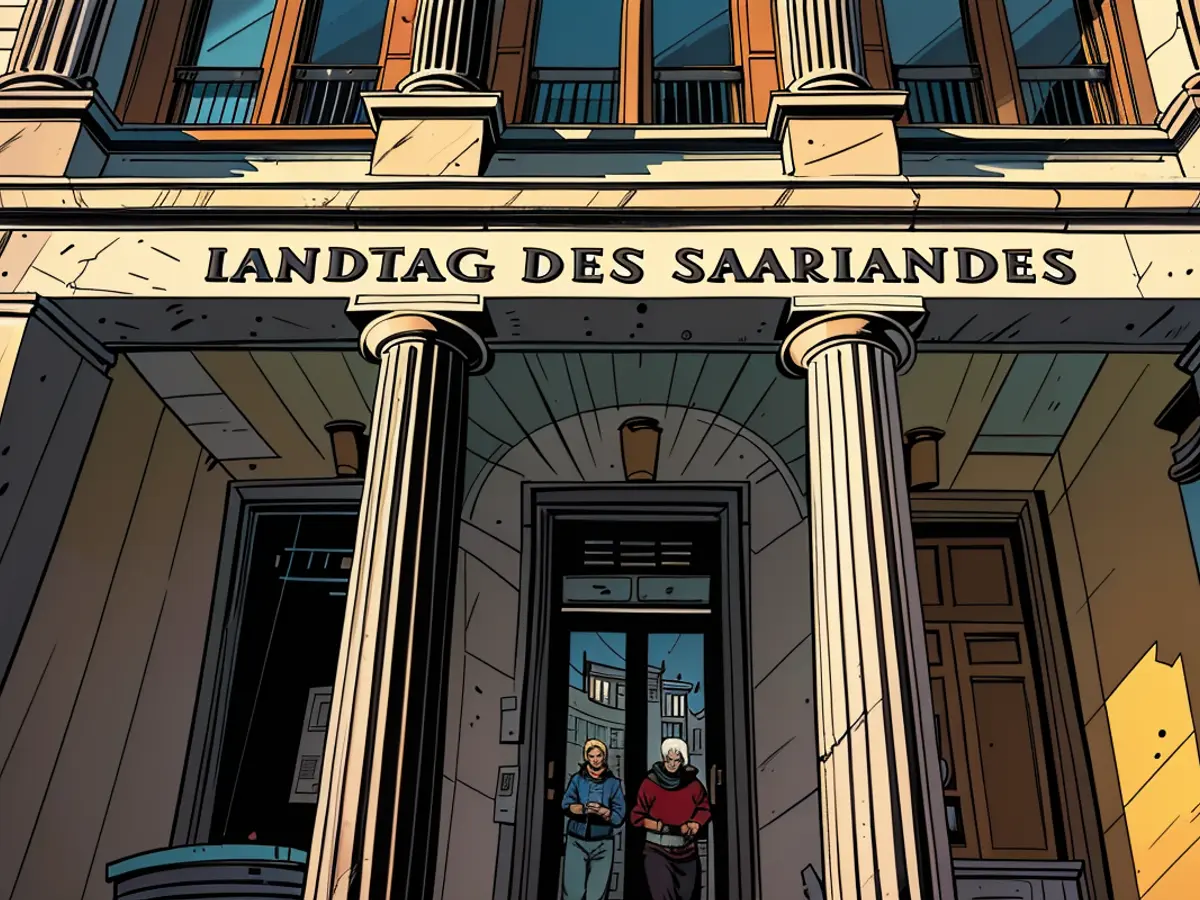University policy - Saar Higher Education Act amended after controversial debate
After a controversial debate, the Landtag of Saarland passed the amendments to the state's Higher Education Law. The absolute majority of SPD deputies voted in favor of the changes. They are supposedly meant to develop and strengthen the university location, according to the government. The opposition CDU and AfD voted against it. "It remains to be seen that even in higher education and science policy, the arrogance of power from the SPD now reigns," said the deputy Jonas Reiter (CDU).
"This Higher Education Law is a modernization push," on the other hand, the SPD fraction leader Ulrich Commerçon opined. "Less bureaucracy, faster procedures, simpler access possibilities in the competition for clever minds."
The legislative amendments enable, among other things, so-called Fast-Track appointments of top scientists without prior advertisement, part-time employment for university professors, and admission to the university after completing a vocational training without practical work experience. In addition, the former vocational college is supposed to be able to grant doctorates to students in the future.
Opposition politicians criticized above all the new regulation of target and performance agreements between the university and the Ministry of Science. Their observance is to be strengthened. "One cannot measure everything in science well. But there are many things that can be measured well, and it speaks for itself to do so," said Science Minister Jakob von Weizsäcker (SPD). If no agreement is reached on goals and performance, the ministry is to be able to decide.
Reiter warned that during the hearing, numerous representatives from the university and the university warned of an "unjustified intervention in university autonomy," which would also be constitutionally questionable. The draft law is "a legislative basis for radical political steering, an influence on universities by the ministry," he added. He concluded: "It is to be controlled. And that is a complete step back."
- The CDU in Saarland, led by deputy Jonas Reiter, expressed concerns about the recently passed Higher Education Law amendments in the Landtag, stating that it promotes an "arrogance of power" from the SPD in both higher education and science policy.
- The SPD fraction leader, Ulrich Commerçon, viewed the amendments as a "modernization push," highlighting the benefits such as less bureaucracy, faster procedures, and simplified access possibilities for talented individuals.
- Criticisms from opposition politicians, including the CDU and AfD, focused primarily on the new regulation of target and performance agreements between the university and the Ministry of Science, as they argued that it infringes on university autonomy and could potentially be unconstitutional.
- As a result of the amended Higher Education Law, the University of Saarland will now be able to grant doctorates to students who have completed vocational training, as well as introduce part-time employment for university professors and implement 'Fast-Track' appointments of top scientists without prior advertisement.








